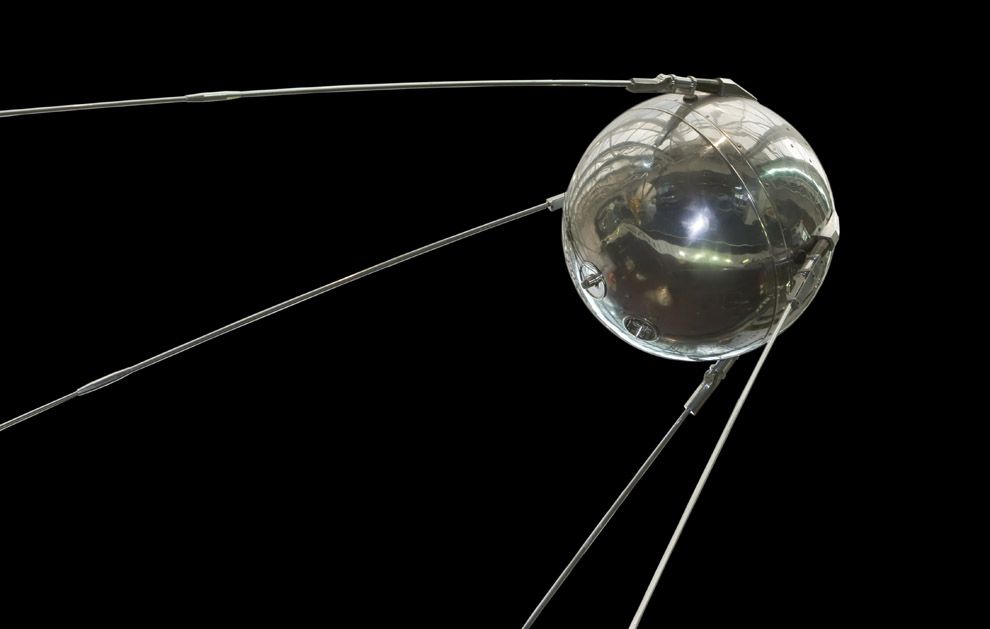When I look at other communist nations, they were invaded, couped, and/or sabotaged at every opportunity, and (forgive me, my history of China is weak) while I’m sure that China faced obstacles from capitalists outside of the country, it somehow rose up to be the power that it is today while the USSR fell, Vietnam and Korea got bombed to hell and back, Cuba was put under crippling sanctions, and surely countless other uprisings got squashed young.
But china didn’t just survive, they thrived. How?
China evaded US fuckery because they sided with them during the cold war (when the USSR planned to invade them) so because they were so strategicly important ally it made no sense for the USA to try to change their goverment
Then when Deng took power and opened the country the USA saw a way to kick off its new economic model (neoliberalism) by using cheap chinese labour to get an economic boom and get an edge over the soviets so they were still important even after the fall of the USSR because there was an economic interdepence between both countries
Also USA arrogance played a part too, because they saw that via economic interdependence between US-China would lead to a liberization of Chinese politics and eventually they would accept neoliberalism too (they were into the end of history stuff) so during the 90’s they did thing like using their power to push the WTO to accept China and had the G8+China meeting
But that didnt happen which lead to a problem to the US because by financing China’s economy they help them become one of the great economies of the world but they werent loyal to the US, but its also important to remember that if China became a liberal democracy it would still be a rival of the US because the bigger they economy would get the more they would threaten to take the US hegemonic influence away.
Specially since the US hegemony is only in military matter nowdays (unimultipolar world)
China avoided getting attacked like the USSR because of the USSR. The US was focused on it and China was viewed as a useful tool to split communists and harm the USSR. The sino-soviet split helped China survive at the expense of the USSR.
After the fall of the USSR it was Deng’s reforms that continued to keep China alive. The capitalists thought they would end China in the longterm and they couldn’t resist the vast wealth they could make from investing into this growth market of 1billion+ people. This incentive continues to be the reason China is not simply isolated on trade, there are thousands of capitalists making too much money from China and they do not support going against China as it would hurt their income.
I’m going to start explaining the sino/soviet split using the first scene in Enemy At The Gates
USSR to China when bloodthirsty barbarians (I don’t read IRL lore)

Hunting wolves with Grandpa?
I put the foreign investments in my mouth so they can’t see my developing my industrial base
韬光养晦
Unironically Nixon Goes To China. This was part of a larger normalization of US-Communist relations throughout the world.
Also, throughout the 90s and 00s there was a persistent belief that China was “liberalizing” and they would one day become a Capitalist Democracy like the rest of us. There are shades of End Of History that influenced this thinking, and it wasn’t broken until the mid 10s. Here’s The Economist admitting as much in 2018, and probably the only admission of being wrong by the publication.
Not since Mao Zedong has a Chinese leader wielded so much power so openly. This is not just a big change for China (see article), but also strong evidence that the West’s 25-year bet on China has failed.
After the collapse of the Soviet Union, the West welcomed the next big communist country into the global economic order. Western leaders believed that giving China a stake in institutions such as the World Trade Organisation (WTO) would bind it into the rules-based system set up after the second world war (see Briefing). They hoped that economic integration would encourage China to evolve into a market economy and that, as they grew wealthier, its people would come to yearn for democratic freedoms, rights and the rule of law.
It was a worthy vision, which this newspaper shared, and better than shutting China out. China has grown rich beyond anybody’s imagining. Under the leadership of Hu Jintao, you could still picture the bet paying off. When Mr Xi took power five years ago China was rife with speculation that he would move towards constitutional rule. Today the illusion has been shattered. In reality, Mr Xi has steered politics and economics towards repression, state control and confrontation.
EDIT: I forgot to mention it, but several other significant events precipitated the current China.
- Vietnam and the loss for the US was the nail in the coffin for hard military power against communism in the Western mind.
- the Sino-Soviet split, where the US thought to drive a wedge in international socialism by partnering with China through soft power. This was part of the broader diplomatic normalization between the West and Communism I mention above, where hard military power gave way to soft diplomatic/economic power and influence in the western thought.
 -thought implementing market reforms that the west mistook as moving towards Capitalism.
-thought implementing market reforms that the west mistook as moving towards Capitalism.- The fall of the Soviet Union, that itself birthed the End of History thinking, came with it the beginnings of the thought that China would follow the same path.
All of these factors led to the western ‘certainty’ of China going down the path of Capitalist Democracy.
I remember when that article came out, my turbo-lib friend who read The Economist religiously nearly forced me to read it. They got pretty smug about China for a while, but I bet they’re melting down now after this tariff fiasco
Remind them of it now
Years of Cold War propaganda convinced western libs that markets are the antithesis of socialism. So the emergence of markets in China was mistakenly interpreted as meaning the end of socialism in China.
Libs not understanding what socialism is, while frustrating, is such a boon to our efforts worldwide because they cannot effectively combat them without knowing how they work.
:this:
Jesus, did no one study history? It’s not nukes, not even close.
There’s literally too many things to list. China is massively powerful because of a enormous litany of reasons.
Let’s start with social media. Way before USA realized social media could be a national security issue, China blocked US social media. At the time we complained it was a free speech issue, now we know that social media is being used by western nations as propaganda tools, Arab spring anyone? Good thing China blocked that shit.
Another thing China did was antagonize USA to see what they would cut off. Before Chips, it was the Wolfe act that blocked China from NASA. China took that opportunity and now is the only nation with a space station that isn’t falling out of the sky.
Now we are seeing China implementing Sun Tzu’s win without fighting. Basically if you keep antagonizing your opponent, they’ll eventually waste all their resources to compete with you. Thus, winning without firing a shot.
So yeah, it’s a huge mix of strategies.
You say it’s not nukes yet you start with things that were only possible because of nukes
Yeah I’m going to say nukes are the starting point
Whaaa? Blocking social media requires nukes? What’s going on in Iran then?
Antagonizing USA requires nukes? What’s happening in Venezuela?
Waiting out your opponent requires nukes? Well at this point I point to the entire planet waiting out USA’s tariff plan.
Not sure where anything I said doesn’t have an analogous example of a country doing exactly that and they do not have nukes. It’s just no one does all at once which is as I said the real reason China is winning.
Whaaa? Blocking social media requires nukes? What’s going on in Iran then?
Secret nukes.
Antagonizing USA requires nukes? What’s happening in Venezuela?
Secret nukes.
Waiting out your opponent requires nukes? Well at this point I point to the entire planet waiting out USA’s tariff plan.
Whole world’s got nukes. Secret nukes.
Antagonizing USA requires nukes?
Kinda, yeah. If you don’t have nukes, you can’t keep antagonizing the US without the risk of getting invaded and/or nuked. Like MacArthur proposed literally just before China developed nukes.
Being independent and relatively free of harassment by the cia requires nukes. How many coup attempts have there been in venezuela? Why do the US and Israel spend so much effort assassinating Iranian scientists? China can do the things it does because it has the power to. You dont start with blocking social media, blocking social media is a thing you can do when youve laid the groundwork.
anyway i was making a joke and now im actually arguing for it when others in this thread have better answers lol
Well, no. I mean if you look at history, USA has tried all those things in China as well.
https://en.wikipedia.org/wiki/American_espionage_in_China
China is just better at handling it. There’s reasons for this, but that’s a whole separate topic of conversation. Suffice to say, look at what happened in 2010. That’s why China can do it, not the nukes.
You ever look at the wiki entries “belligerents” section for the cold war post sino-soviet split and you start seeing the Soviet Union on one side and U.S/NATO and the PRC on the other?
It’s mostly due to the sino soviet split, doing business with China and not attacking them was an orientation that (successfully) undermined the socialist bloc
-
Get nukes
-
Pretend to be besties with The Great Satan
-
Since I haven’t seen it mentioned it, what role did reeducation and cultural revolutions play in China to help it resist Western influence? Many other communist revolutions had a disaffected petite bourgeoisie class that resented the new system and worked to undermine it through subterfuge. Did the effects of the Chinese civil war and later reforms have enough staying power to change people’s general ideas of property and government?
Many other communist revolutions had a disaffected petite bourgeoisie class that resented the new system and worked to undermine it through subterfuge.
Something that blew my mind recently is that the 5 stars on the chinese flag represent the CPC (the big star), and then the four “revolutionary classes”: the peasantry, the proletariat, the petite bourgeoisie and the national bourgeoisie. https://en.wikipedia.org/wiki/New_Democracy
ince I haven’t seen it mentioned it, what role did reeducation and cultural revolutions play in China to help it resist Western influence?
I don’t know enough to answer, but one thing is clear: it worked with Xi
the peasantry, the proletariat, the petite bourgeoisie and the national bourgeoisie
Almost inconceivable that this alliance could exist and it would support socialism. Turns out the material conditions in the global south are radically different from those in the imperial core.
deleted by creator
Follow up thought, China was extremely underdeveloped (due to being colonized and war) by the time the communists wrestled their way to power. Because they were able to gradually increase the quality of life and stability of society, they were able to maintain popular support. European communist nations were either already developed (GDR) or not developed very fully (Romania?), so the citizens didn’t give the government credit for improving their material conditions
- Got nukes
- Stuck to the plan
DPRK got nukes and stuck to the plan, but never got big like china. Just a matter of natural resources?
Its never “just a matter of” anything. The Sino/Soviet split had deep ramifications across a broad spectrum of conflicts that had a material impact on Chinas reputation with the west.
They partnered with the west in Afghanistan, backing the mujahideen. They backed Cambodia and had growing tensions with Vietnam due to their ties to the Soviets. These actions showed the west they might play ball. Nixon going to China was an effort to drive a deeper wedge between Moscow and Beijing.
After the opening up of China, they convinced Western investors to pour money into their industries. The west thought they would become a liberal democracy any day, just like they think they’re going to collapse any day.
Arguably the Sino/Soviet split was a large factor in the Soviet collapse.
China has a billion people which goes a long way
~ 1.4 billion people vs. ~ 25 million, as well as having a small fraction of total territory would account for a lot
Not to mention, you know, being sanctioned to hell and back and being bombed into the past within living memory.
And possessing control over what was historically the least productive half of the Korean peninsula on account of it being mountainous as all hell while all the good farmland is in the hostile occupied southern half of the country.
Get the west addicted on your produce of their design
Working on your own produce as a side hustle
It helps to get the Great Satan economically dependent on your exports, exports which supply nearly every part of the US economy and the flow of which would be halted if they attempt any regime change fuckery
When Stalin abandoned internationalism and adopted socialism in one country (this is an incredibly broad generalization of events bordering on the ahistorical but please bear with me for the sake of brevity) it became possible for another nation to take a socialist developmentalist line without needing to support the ussr.
The history of Chinas post ww2 20th century is one of threading that needle. They did a pretty good job.
The most interesting and telling thing will be the Chinese governments actions in the next ten years. Will they make the same mistakes as the ussr did or will they chart a different course as America tries to align itself against a new communist bloc.
When Stalin abandoned internationalism and adopted socialism in one country
Objectively inaccurate
Redditors read and quote even one entire sentence challenge level: impossible.
In all seriousness, we have to at least acknowledge that the ussr, under Stalin, stopped trying to expand the communist world so aggressively and that created the space for a nation like China to develop the way that it did after events like the sino-Soviet split.
To deny that China had this role is even more ahistorical than distilling 1945-maybe ‘51? - Idk I’m thumbing this sucker out at a truck stop away from any books - down to “Stalin decided it was better to build the Union up and pay out at least some peace dividend than to keep up the hellish war economy against the west.”
Edit: I should probably preface this with a declaration that I haven’t slept for going on 30 hours and I haven’t ate since breakfast yesterday, so please forgive me if I’m being particularly catty. Not very scholarly or particularly gentlepersonly of me to tack this on before a gigantic screed where I am extremely catty and I’m typing this up after the fact realizing that. But
 you managed to get me to out of a rut and write something longer than a few sentences.
you managed to get me to out of a rut and write something longer than a few sentences.In all seriousness, we have to at least acknowledge that the ussr, under Stalin, stopped trying to expand the communist world so aggressively
You’re still hypersimplifying and outright ommitting history to the point of objective inaccuracy.
First, the USSR was not a nation but a Federation of nations. One may even call it a council union of socialist republics.
Second, the Stalin period can be generically broken up into three periods that encompass the three decades of his life spent as General Secretary - the early fifties to be excluded for the sake of simplicity with a focus on the 20s-40s - and through out each period was internationalism not abandoned.
One can try to argue that during the 20s that "internationalism was abandoned ", if ones understanding of internationalism consists of being a bone-headed war-monger with as much concrete understanding of the material conditions the Soviet - or really, any - working class faced as in the same manner of the racoon understanding the transformation that a sugar cube goes when being washed in a river, and try to paint the understanding that the failure of the ignition of a world revolution and capitalist counter-revolution wave necessitating a transformation of tactics from outright martial revolt to pursuing other more viable avenues of spreading the revolution via the Comintern to veryinf degrees of success and failure.
What of Stalins socialism in one country in the same period? Firstly, it was Lenin’s idea that was ultimately drawn in conclusion from watching the capitalists crush the attempted revolutions in the West. An idea that both the Bolshevik Left and Right agreed upon, but bickered to the point of bloodshed over on the material planning and execution of. This building of the industrial capacity of the Soviet republics occured in tandem of acts of Soviet international solidarity, be they overt acts such as the deployment of the Red Army to combat imperial Japanese incursions into Socialist Mongolia, or more covert actions such as funding and directing the communist parties of the world.
The second period of the '30s? Preparation for and defense against the inevitable invasion by the fascist armies. Fairly self-explanatory to say there are zero instances of the Soviet Union abandoning Internationalism, but a plethora of evidence contrary on the pursuit of communist internationalism and even forming the popular front against fascism.
The third period of the '40s? The hard victory over fascism. The formation of new communist nations out of the ashes of war. The formation of the COMECON and the Warsaw Treaty Organization. Arguably the greatest expansion of communist power in the world occured under Stalin in his twilight years.
and that created the space for a nation like China to develop the way that it did after events like the sino-Soviet split.
Here’s where we get closer to the crux of the issue. As seen above, an “abandonment of internationalism” was not the primary, or even tertiary cause of China going their own way - especially seeing how that same so-called abandoned internationalism supported the CPC through out its history in material means. The topic of what that support entailed or even the mistakes the comintern made in their analysis of the conditions the CPC faced in respect to their own local material conditions is a completely separate subject of discussion that deserves its own time in the sun being examined, but that’s not this post. - but the truth lies closer to the history and nature of the international aid provided to the CPC through their history of struggle. I would attribute the primary mistake that made the creation of a fractured space among the communist states known as the Sino-Soviet split was the dogmatic and paternalistic pursuit of unity under the Soviet banner. The People’s Republic of China had won their revolution, and were welcomed to the fraternity of socialist nations with open arms and material aid to help build an industrial foundation to further build upon in their own path of development. Yet, historical discontent with their party’s subordinating treatment by the comintern combined with growing diplomatic and geographic tension with the Soviets combined with their internal ideological inconsistencies that they would work upon in their own manner, would slowly boil the pot until it overflows in '61.
Of course this same problem occurred between the Soviets and Yugoslavia before that in '48. Which we could call the overture to the Sino-Soviet split. Many of the - simplified - same reasons strike here as well. But that’s also another topic for another post.
Finally
“Stalin decided it was better to build the Union up and pay out at least some peace dividend than to keep up the hellish war economy against the west.”
The great patriotic war was a purely defensive war against fascist invaders that bled the Soviet peoples dry. Do you know what happened in the period between the victory that was won in the west and the redeployment of the Red Army to liberate occupied North-East China and the Korean peninsula? Stalin ordered the demobilization of construction workers, teachers, doctors, and other groups necessary to begin rebuilding the ruined western part of the motherland. There was zero desire to go anywhere beyond ending the fascist threat and going home. There was zero desire to begin senselessly killing the allies the Soviet people fought with and on the behalf for for half a decade. There was zero desire to gun down the friends the soldiers of the Red Army made on Elbe day. Thinking doing anything other than ending the war and sending the brave Soviet men and women home screams deeply unserious “redditor” to me.
You’re fine, I had t had breakfast either so I definitely acted like an asshole. It’s just frustrating to broadly generalize with a disclaimer and still catch it.
The thing I didn’t say was that Stalin had no choice but to bring em home and the ideology I link that decision to and its consequences are not an indictment of him.
It’s just that often times decisions of state aren’t really made freely and except for certain circumstances, super deterministic systems tend to inherit a powerful inertia.
Well I hope you had a very nice breakfast though. I enjoyed my crunchy deep fried potato chunks and orange.
I had a couple of hot dogs and a half gallon of sweet tea. Bout to eat an orange though. You save and candy your peels?
I ate out for the first time in months so sadly no. I do however have a giant jar of sliced and diced up lemons, ginger slivers, and cinnamon soaking in honey and sugar as a jar of pre-made tea mix. Sorta similar since I eat the entire pile of lemon ginger mush after drinking a cup of the tea. But that’s a once in a while treat because that’s so much sugary goodness!
Stalin abandoned internationalism
it became possible for another nation to take a socialist developmentalist line
Uh… Stalin’s USSR was instrumental in the communists winning the civil war in China, and the further development later. At some point, close to 10% of Soviet GDP was aid to China.
Then what happened
Then China qualified Khruschyov as revisionist and started to degrade relations. How is any of this on Stalin?
Socialism in one country leaves a place for a nation with a socialist developmentalist aim to occupy. China ended up being the one who occupied that space. Socialism in one country is a contribution generally attributed to Stalin, not that I think he had any choice in the matter.
deleted by creator


























